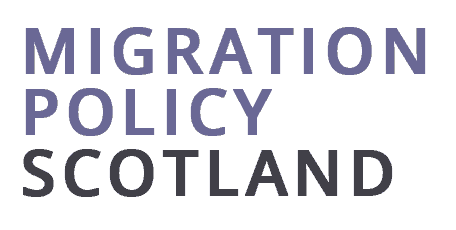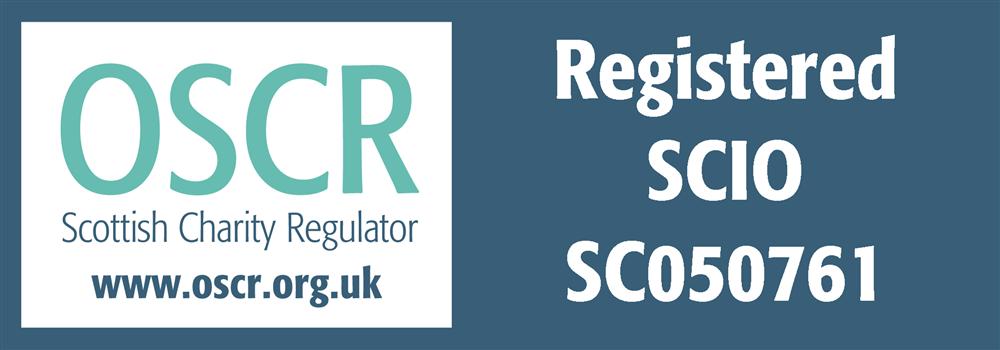Blog by Francesca Stella, Senior Lecturer, University of Glasgow and Prof. Rebecca Kay, University of Glasgow
English language tuition for adult migrants is an area of education closely connected to policies around immigration control, citizenship, and migrant ‘integration’ (Simpson 2019:26). The terrain of language learning and migrant ‘integration’ is deeply political, because it is bound up with power relations between the ‘host’ society and new arrivals, which include diverse and highly stratified groups of migrants. Nonetheless, migrants living in the UK generally recognise the importance of English in their daily lives and their English language needs, while continuing to value their linguistic and cultural heritages and switching between different languages in different contexts (Cooke and Simpson 2009; Cooke and Peutrell 2019).
ESOL classes (English for Speakers of Other languages), language cafes, buddy schemes and other less structured activities that help migrants develop their language skills play a crucial role in facilitating language acquisition for adult migrants. Access to language learning opportunities can improve migrants’ employment prospects, not only helping them to secure a job, but also to find more secure and rewarding employment, better suited to their experience and qualifications. Language learning activities also create opportunities to develop social connections and acquire knowledge about services and sources of support, while also developing migrant learners’ confidence, independence, and feelings of belonging (Stella and Kay 2023: 42-5).
Scotland’s migrant populations have grown and diversified over the past two decades. Asylum seekers and refugees, those arriving through resettlement schemes and complementary pathways, migrant workers, students, and family members are now living in many different parts of Scotland, some of which previously had only very little experience of supporting migrant populations. Provision of ESOL classes and support has grown and adapted as well, with a mix of college courses, community-based classes, befriending schemes, and language cafes available in most larger towns and cities, as well as some much smaller, more rural, and remote settings. Nonetheless, there are still many challenges, with huge waiting lists for classes in cities like Glasgow, and difficulties providing suitable classes for smaller and more widely spread groups of learners in rural settings (Stella and Kay 2023: 25-7).
The significance of language learning opportunities and the need to support these well has been acknowledged in policy terms, through two consecutive ESOL Strategies for Scotland (2007-2014 and 2015-2020), as well as in the recognition of language as a key aspect of successful settlement in the New Scots Refugee Integration Strategy (2018-22). However, the last few years have seen a period of significant change and upheaval for ESOL provision in Scotland. Changes to the funding model and channelling of resource through FE colleges since 2018 affected the balance of relationships between third sector, local authority, and FE providers. In some areas this has increased competition for scarce resources and reinforced hierarchies among providers stifling creative collaborations and forms of provision. In other places third sector providers have been left struggling to fill the gaps in an over-stretched landscape of provision. The decision not to renew the Scotland ESOL strategy in 2020, but rather to incorporate ESOL into a wider Adult Learning Strategy, has signalled a lack of strategic vision for the sector and a failure to address issues linked to under-resourced, piecemeal, and disjointed provision (Stella and Kay 2023: 21-2).
The Language Learning and Migrant ‘Integration’ in Scotland (LLAMIS) project explored the complex landscape of ESOL provision and demand in Scotland through a comparison between Glasgow, Aberdeen city and Aberdeenshire. The project was funded by British Academy; qualitative fieldwork was conducted in 2020-21, and included interviews with ESOL providers, decision-makers, teachers, volunteers, and learners. We gathered rich data providing insights into a wide range of perspectives and experiences. We were interested in their views on how well ESOL provision was working for learners and providers in different parts of Scotland, but also their understandings of who, and what, publicly funded ESOL is for.
We were inspired in our study by new ways of thinking about the relationship between language learning and citizenship and critical reflections on the emancipatory potential of language learning, as well as by different models of and approaches to support for language learning. We also received terrific support and encouragement from NATECLA Scotland. We were delighted therefore to have inputs from Pauline Blake-Johnstone, chair of NATECLA Scotland, as well as from Mel Cooke and Rob Peutrell, Steve Brown, Jodi Watson and Sheila MacDonald at our concluding workshop – the videorecording and podcast of the workshop presentations are available here.
The workshop also gave us an important opportunity to discuss our research findings and our recommendations with participants; the latter were revised based on their input. A comprehensive discussion of our research findings can be found in the detailed project report , while a summary of key findings and recommendations can be found in a more concise policy briefing. We conclude this blog by highlighting the recommendations emerging from our research. We hope this can contribute to debates about the future of ESOL and its relation to migration policy in Scotland and in the rest of the UK (Rolfe and Stevenson 2021; Simpson and Hunter 2023).
- A comprehensive mapping exercise is required to scope need and demand for, and provision of ESOL in Scotland
There is ample evidence of unmet demand in all three of the council areas where we conducted our research. Yet we do not have a full picture of the geography of ESOL need and demand across Scotland. The landscape of ESOL provision in Scotland has changed considerably because of shifting migration patterns and policy over the past twenty years and presents significant regional variation, yet the last Scotland-wide, mapping exercise was commissioned in 2004, to inform the first Scotland ESOL Strategy. The scoping review would require the collection of new quantitative and qualitative data, but can also draw on existing datasets (i.e., demographic data form the latest Scottish census, records from FE and community providers) and should consider new learner groups who are arriving, or are likely to arrive, as a result of current policy developments at UK and Scotland level. These include ongoing changes in the UK asylum and resettlement routes, changes in the UK points-based visa routes for voluntary migrants, and the role of migration in Scotland’s population strategy.
- Long-term strategic vision and adequate funding are needed to secure effective ESOL governance and provision.
Scotland no longer has a standalone ESOL strategy: instead, ESOL was incorporated into the broader national Adult Learning Strategy 2022-2027, alongside other areas of community adult learning. The Adult Learning Strategy commits to undertake a review of the impact of the Scotland ESOL strategy 2015-2020, and to produce recommendations for this specialism within the context of the Adult Learning Strategy. The current position leaves the ESOL sector without a clear strategy, raising concerns that the distinctiveness of ESOL learners and specialism may be lost. ESOL-related policy needs to centre learners’ diverse needs and aspirations and be informed by consultation with learners and practitioners. Rather than referring to a generic ‘ESOL learner’, ESOL-related policy also needs to have a clear vision about who and what publicly funded ESOL is for: while it is right that the emphasis should remain on the poorest and more marginalised migrants, consideration needs to be given to the fact that ESOL needs are not limited to these groups. Adequate funding is essential to enable the sector to cope with continuing change and avoid an overreliance on unpaid volunteers: a funding strategy should be a key part of a long-term vision for the ESOL sector.
- A joined-up approach to ESOL provision should reflect the diverse needs of learners and facilitate coordination and cooperation across ESOL providers and with other services supporting migrants.
Our project report outlines the diversity of Scotland’s ESOL learners, providers, and regional contexts. Developing a more joined-up approach to this diversity would enhance coordination and cooperation across the sector but would also require thinking across ESOL and other relevant policy areas such as migration policy; community development and integration policies; and education policies. This more joined-up approach underpins the New Scots Integration Strategy for asylum seekers and refugees, but is much less clearly articulated, for example, in the Scottish Government’s thinking about how to attract and retain migrant workers, or how to support family members accompanying them. Our study points to the key role that ESOL activities play in a broader process of settlement for learners, one which includes economic, social, cultural, civic, and political dimensions. Our findings show the importance of centring learners’ diverse needs and aspirations in ESOL provision and understanding their language needs in the context of their wider lives. Devising a framework that starts from the needs of learners rather than drawing boundaries around what is/is not ESOL, or setting hierarchies around accredited and non-accredited learning, would lead to a more joined up approach to ESOL provision. This joined-up approach would facilitate the coordination of diverse provision and encourage cooperation and innovation across Scotland’s many geographical contexts and between different ESOL providers. It would also incentivise cooperation across ESOL providers and other services supporting ESOL learners and facilitate outreach to hard-to-reach groups.
Francesca Stella is Senior Lecturer in Sociology, School of Social and Political Sciences, University of Glasgow. Rebecca Kay is Professor of Russian Gender Studies, School of Social and Political Sciences, University of Glasgow. The Language Learning and Migrant ‘Integration’ in Scotland (LLAMIS) project was funded by a British Academy small project grant.
The views expressed in this blog are those of the author(s) and do not necessarily reflect the position of Migration Policy Scotland.


